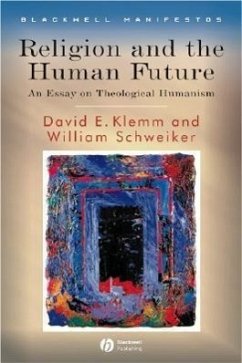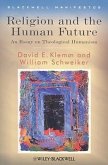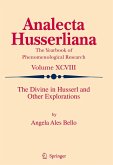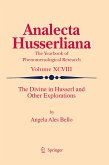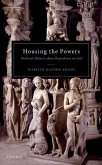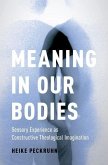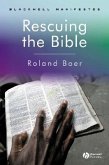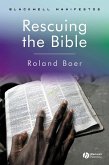Ours is a time when cultures and religions creatively interact but also often collide, and human power increasingly endangers forms of life even while great technological advances enable us to better relieve suffering and want. It is a time of great uncertainty, unrest, but also creativity, which reveals a profound quest to understand the meaning and responsibility of our shared and yet divided humanity. It is this religious quest for humanity that authors David E. Klemm and William Schweiker address in this Blackwell Manifesto. The authors outline a vision called theological humanism based on the idea that neither God's will nor human flourishing alone provide an adequate measure and orientation for human life. The task of human life is responsibility for the integrity of life, the measure of human action. Yet more than that, the idea of theological humanism articulates a profound and ancient insight too often lost in the current debate between theologians and humanists - that human beings are mixed creatures striving for wholeness and integrity. This powerful manifesto sets forth a dynamic and robust vision of human life beyond the divisions that haunt the humanities, social sciences, theology, and religious studies. It announces a way of thinking about and living out the quest for our humanity and thus the task of religion and the human future.
"Religion and the Human Future provides an excellent, wellthought-out and well documented analysis of the current dilemmafacing religions and religious people: the human dangers andinadequacies of hypertheism, with its exaggerated response to thechallenge of modernity and over humanization, with its overlyunreflective veneration for modernity." (EthicalPerspectives, July 2010)
"This text sounds a clarion call to change the debate about therole of religion in human life. ... With limited endnotes and anengaging style, this carefully argued text mostly succeeds in itsattempt to be accessible to a wider audience that could includeupperlevel undergraduates." (Religious Studies Review,September 2009)"This is a very impressive book which works its way through a widerange of serious issues with a poise and balance that is rare inacademic books. It is well informed and wise, weighing in oncontentious intellectual problems without being judgmental andsectarian and is unique in both acknowledging and articulating theinevitable ambiguity of religion."
-Dale Wright, Occidental College, CA
"At a time when discourse about religion seems polarised betweenfideistic theism and reductive secularism, Klemm and Schweikerprovide an imaginative "third way," in the form of a robusttheological humanism that draws on and transforms the richresources of theological and humanist traditions. This is anindispensable book that takes us beyond the stalemates of thepresent into a truly hopeful future grounded in humanresponsibility for the integrity of life."
-Joseph Prabhu, California State University, LosAngeles
"This essay on Theological Humanism is a welcome and powerfulreminder that the primary task of theology is to explore the truthabout divine-human relationship - and not to justify the ends andmeans of particular religious (or secular) institutions or'communities'. Theological Humanism is committed to critical andself-critical thinking about the potential of human beings tomature in God's universe where the integrity of all life isrespected. This manifesto offers a new orientation for theologytoday."
-Werner G. Jeanrond, University of Glasgow
"This text sounds a clarion call to change the debate about therole of religion in human life. ... With limited endnotes and anengaging style, this carefully argued text mostly succeeds in itsattempt to be accessible to a wider audience that could includeupperlevel undergraduates." (Religious Studies Review,September 2009)"This is a very impressive book which works its way through a widerange of serious issues with a poise and balance that is rare inacademic books. It is well informed and wise, weighing in oncontentious intellectual problems without being judgmental andsectarian and is unique in both acknowledging and articulating theinevitable ambiguity of religion."
-Dale Wright, Occidental College, CA
"At a time when discourse about religion seems polarised betweenfideistic theism and reductive secularism, Klemm and Schweikerprovide an imaginative "third way," in the form of a robusttheological humanism that draws on and transforms the richresources of theological and humanist traditions. This is anindispensable book that takes us beyond the stalemates of thepresent into a truly hopeful future grounded in humanresponsibility for the integrity of life."
-Joseph Prabhu, California State University, LosAngeles
"This essay on Theological Humanism is a welcome and powerfulreminder that the primary task of theology is to explore the truthabout divine-human relationship - and not to justify the ends andmeans of particular religious (or secular) institutions or'communities'. Theological Humanism is committed to critical andself-critical thinking about the potential of human beings tomature in God's universe where the integrity of all life isrespected. This manifesto offers a new orientation for theologytoday."
-Werner G. Jeanrond, University of Glasgow

